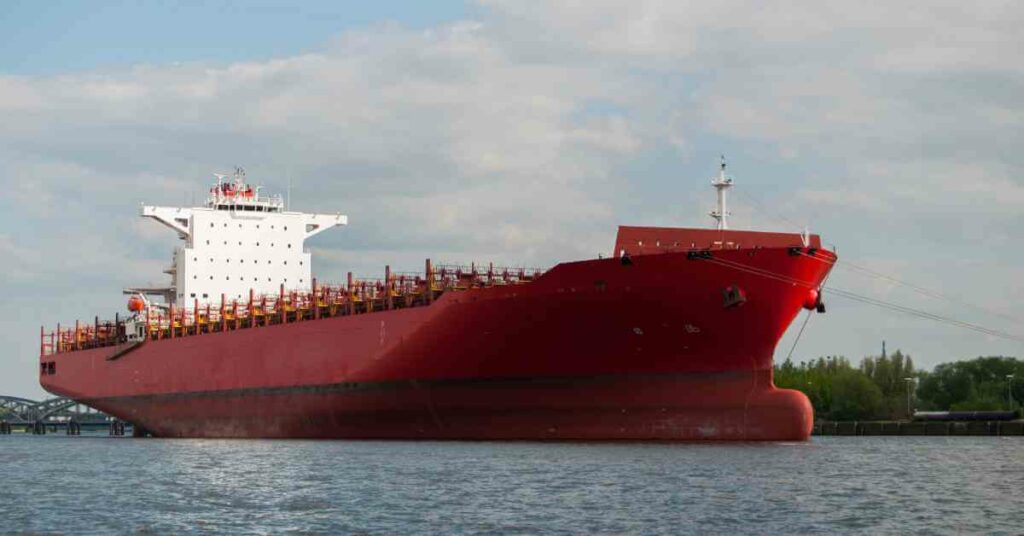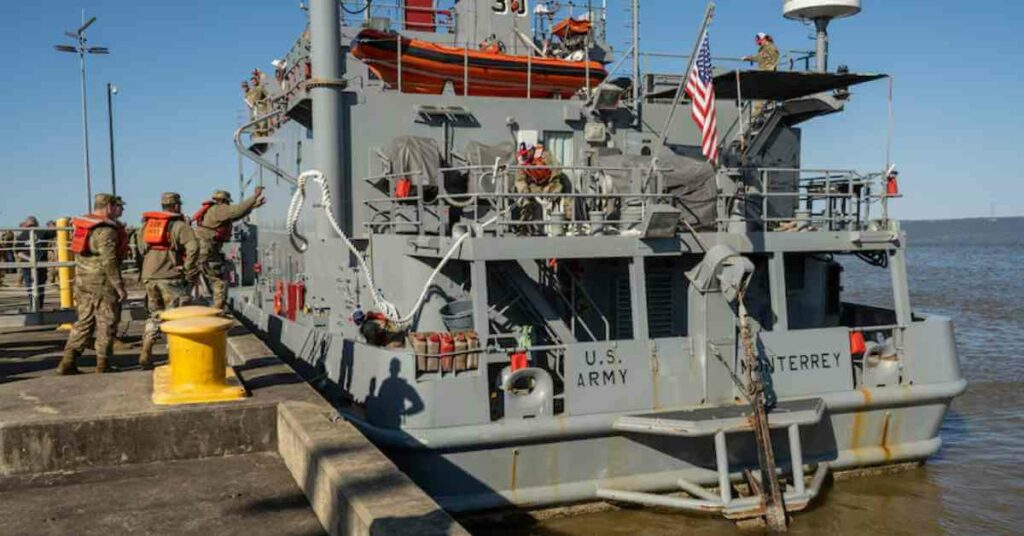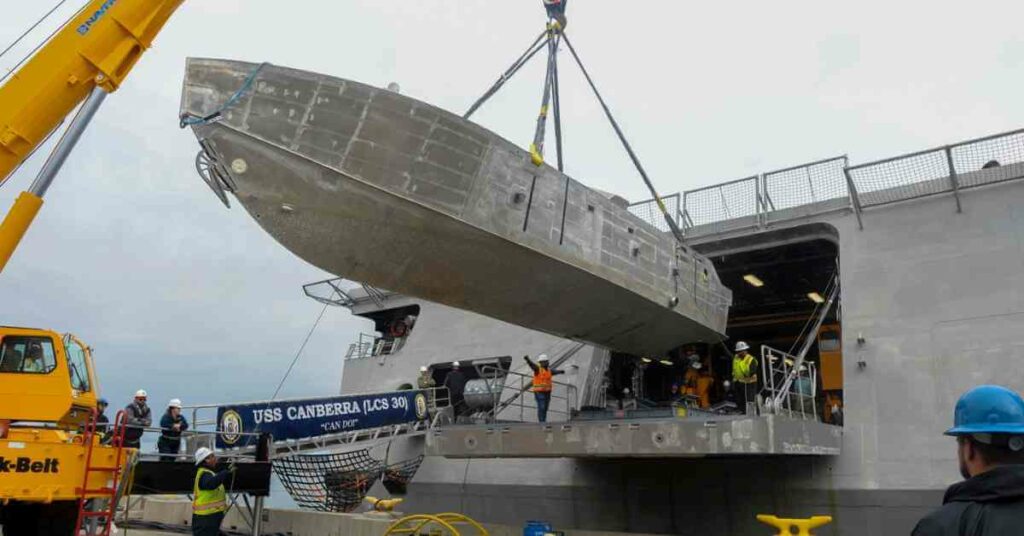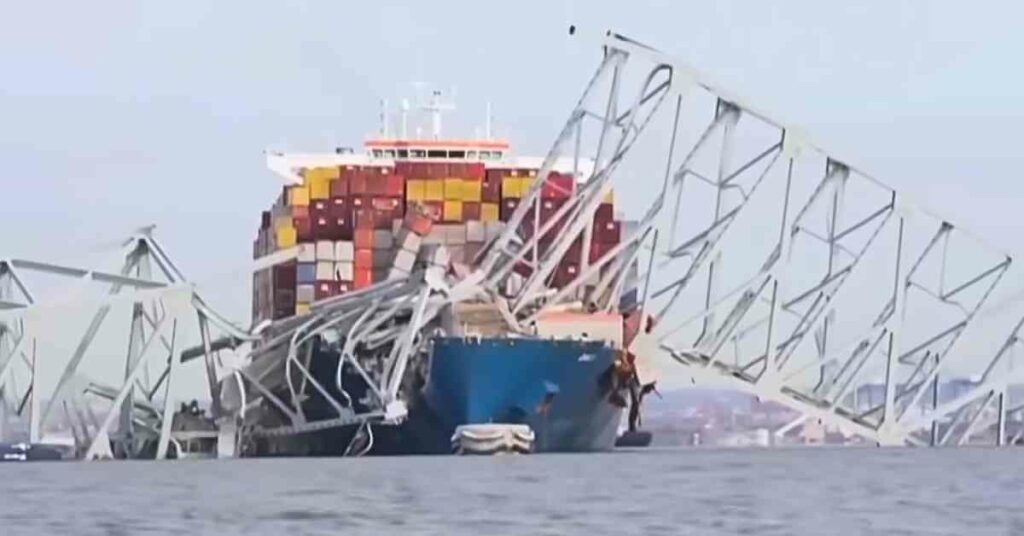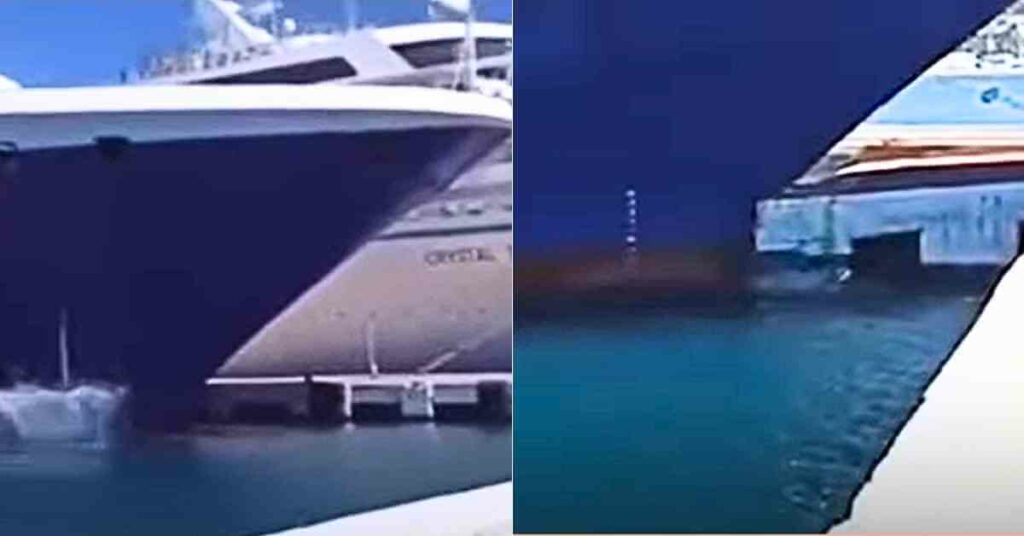U.S East Coast Ports To Handle Additional Ships After Baltimore Bridge Collapse Leaves Its Terminals Inaccessible

One of the busiest ports on the East Coast has been disrupted for shipping and transportation routes due to the Francis Scott Key Bridge collapse in Baltimore.
The container ship Dali struck the bridge early on March 26, 2024, causing it to collapse and suspending ship traffic into and out of the Port of Baltimore.
Judah Levine, head of research for the international freight booking platform Freightos, stated that efforts are currently being made to reroute ships and cargo to alternate ports. This procedure is anticipated to result in traffic jams and delays for importers.
The situation has become more severe since six people are unfortunately missing and thought to be dead as a result of the collapse.
According to Jessica Gail, a spokesman for the American Trucking Association, this tragic incident has major and long-lasting effects on the area’s infrastructure and its immediate issues.
East Coast ports, particularly those in New York, New Jersey, and Virginia, are well-positioned to handle additional ships if the Baltimore bridge collapse leaves terminals inaccessible, thus reducing the impact on global trade flows.
Video Credits: Insider News/YouTube
A significant part of the country’s infrastructure is the port in Baltimore and the Key Bridge, which almost 1.3 million trucks use annually. Delays and higher fuel costs are expected to greatly impact the area’s logistics activities, as vehicles transporting hazardous materials must take longer routes.
The collapse of the bridge will complicate matters further for global shipping, which is already affected by conflicts like the strikes in the Red Sea by the Houthi rebels.
These diversions have increased freight costs from Asia to the United States, with Baltimore’s port becoming increasingly crucial for retailers and industries looking to diversify their supply networks.
Jonathan Gold, vice president of the National Retail Federation’s supply chain and customs policy, highlights the uncertainties surrounding the impact on shipments and the supply chain overall.
The CEO of Flexport, Ryan Petersen, expects shortages and serious consequences for ocean container shipping and East Coast trucks, even with efforts to lessen the impact.
The logistical problems are immense, with rerouting operations already underway for hundreds of cargo containers, including those carrying vital supplies like a donated playground headed for Zambia.
The long-term economic effects are becoming prominent, even if the immediate focus is recovery and rerouting operations. The collapse of the Key Bridge could disrupt the transportation of commodities, which is essential to many industries, including the building and automobile sectors.
Companies that depend on the Port of Baltimore to import vehicles and steel may experience disruptions to their operations, which could affect project schedules and local economies.
Reference: Bloomberg
Disclaimer :
The information contained in this website is for general information purposes only. While we endeavour to keep the information up to date and correct, we make no representations or warranties of any kind, express or implied, about the completeness, accuracy, reliability, suitability or availability with respect to the website or the information, products, services, or related graphics contained on the website for any purpose. Any reliance you place on such information is therefore strictly at your own risk.
In no event will we be liable for any loss or damage including without limitation, indirect or consequential loss or damage, or any loss or damage whatsoever arising from loss of data or profits arising out of, or in connection with, the use of this website.
Disclaimer :
The information contained in this website is for general information purposes only. While we endeavour to keep the information up to date and correct, we make no representations or warranties of any kind, express or implied, about the completeness, accuracy, reliability, suitability or availability with respect to the website or the information, products, services, or related graphics contained on the website for any purpose. Any reliance you place on such information is therefore strictly at your own risk.
In no event will we be liable for any loss or damage including without limitation, indirect or consequential loss or damage, or any loss or damage whatsoever arising from loss of data or profits arising out of, or in connection with, the use of this website.
Do you have info to share with us ? Suggest a correction
About Author
Marine Insight News Network is a premier source for up-to-date, comprehensive, and insightful coverage of the maritime industry. Dedicated to offering the latest news, trends, and analyses in shipping, marine technology, regulations, and global maritime affairs, Marine Insight News Network prides itself on delivering accurate, engaging, and relevant information.

About Author
Marine Insight News Network is a premier source for up-to-date, comprehensive, and insightful coverage of the maritime industry. Dedicated to offering the latest news, trends, and analyses in shipping, marine technology, regulations, and global maritime affairs, Marine Insight News Network prides itself on delivering accurate, engaging, and relevant information.
Latest Shipping News Articles You Would Like:
Subscribe To Our Newsletters
By subscribing, you agree to our Privacy Policy and may receive occasional deal communications; you can unsubscribe anytime.




